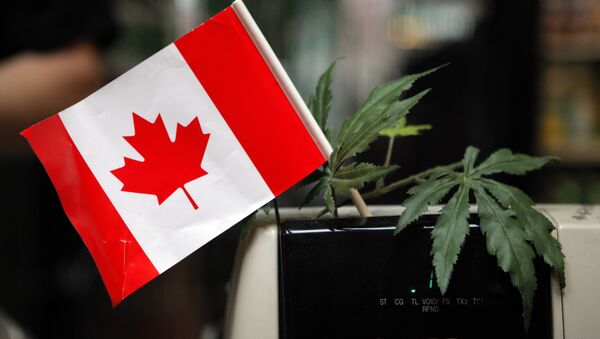The issue has been raised by Canadian Minister of Finance Charles Sousa, who claimed that Canada is already looking into ways to secure a steady supply of weed to meet demand.
"Ultimately the biggest problem that appears after today's discussion is one of supply," Sousa told the news outlet last week, following a meeting to discuss the problem. "So we want to make certain that, when we do proceed, there is sufficient supply to accommodate the activity because what we're trying to do is curb the illicit use and organized crime that now exists around it."
According to a legalization plan released by Prime Minister Justin Trudeau earlier in April, recreational marijuana will be sold by email by 2018. Bloomberg has calculated that by 2021, the total amount of weed sold this way might reach the hefty weight of 575,000 kilograms.
However, if the country fails to fulfill the demand for legal pot, people will turn back to the black market — something that government wants to prevent.
The demand for marijuana is growing fast; according to Bloomberg's calculations, about 170,000 people are registered marijuana users already, three times as many as a year earlier.
In one attempt to meet the demand, Health Canada is preparing to make growing license acquisition easier, but that raises serious concerns over pot quality, as traces of harmful pesticides were found in some cannabis supplies earlier this year. The incident highlighted the need for the Canadian government to develop and enforce new testing standards.
Cannimed Therapeutics and Aphria, two Canadian medical cannabis producers, have spoken in favor of better regulation from the government.
"We firmly believe that there is a critical need to set clear and enforceable rules to ensure that customers are protected and have access to clean and safe product," Aphria CEO Vic Neufeld told the newspaper. "This is of utmost importance, given the expected demand that will come with the introduction of a recreational market. As such, Aphria is calling for a strict product-testing regime across the sector."


